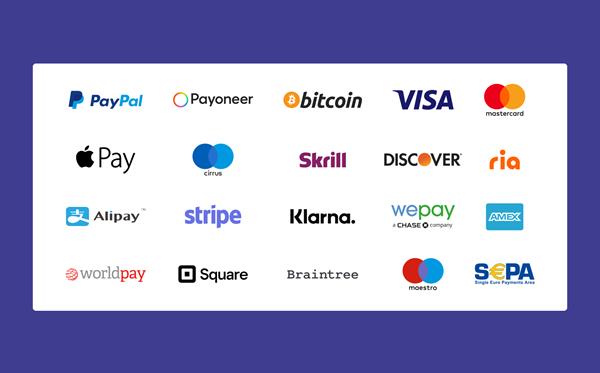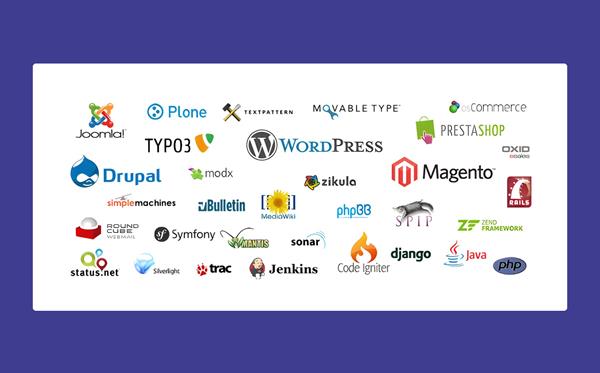The Relationship Between Lead Generation and CMS Selection: Key Statistics and Insights

In today’s digital landscape, the success of lead generation strategies depends heavily on the choice of content management system (CMS). A CMS is more than just a platform for managing content; it plays a critical role in facilitating marketing campaigns, enhancing SEO, and automating workflows—all of which contribute to successful lead generation. Below, we explore how the right CMS can significantly impact lead generation, backed by key statistics and research.
1. Seamless Integration with Marketing Tools
A CMS that integrates easily with lead generation tools, such as CRMs (Customer Relationship Management), email marketing software, and marketing automation platforms, can streamline the lead capture and nurturing process. According to HubSpot, businesses that automate lead management see a 10% or more increase in revenue within 6 to 9 months.
Many advanced CMS platforms offer built-in or seamless integrations with tools like HubSpot, Salesforce, and MailChimp, making it easier to automate lead generation campaigns, track user behavior, and convert leads into customers efficiently.
2. Optimized for SEO to Drive Organic Leads
Search engine optimization (SEO) is one of the most effective ways to generate high-quality leads, and your CMS should support this through features like metadata management, URL structures, and mobile responsiveness. Research from BrightEdge shows that 53% of all website traffic comes from organic search, and businesses that leverage SEO-friendly CMS platforms often see a significant uptick in lead generation.
CMSs like WordPress, which powers over 40% of websites globally, come with SEO plugins (e.g., Yoast SEO, Rank Math) that can enhance a website’s visibility, driving organic leads that convert at higher rates than paid traffic.
3. Content Personalization and Lead Nurturing
Personalized content is key to engaging potential leads at various stages of the buyer's journey. In fact, 74% of consumers feel frustrated when content isn’t personalized to their interests, according to Instapage. A CMS that supports dynamic content personalization can help deliver the right content to the right audience at the right time, significantly boosting lead conversion rates.
Platforms like Drupal or Kentico offer advanced content personalization tools, enabling marketers to customize content based on user data, behavior, and demographics, which in turn nurtures leads more effectively.
4. Speed and Performance Impact Lead Conversion
A fast, well-performing website is crucial for keeping potential leads engaged. Google reports that a one-second delay in page load time can result in a 7% reduction in conversions. Many modern CMS platforms, such as Shopify Plus or Squarespace, prioritize performance optimization with built-in content delivery networks (CDNs) and caching systems that ensure faster load times, improving both user experience and lead generation outcomes.
5. Forms and CTAs (Calls to Action)
One of the most direct relationships between CMS selection and lead generation is the ability to create and manage effective forms and CTAs. Studies by MarketingSherpa reveal that 48% of marketers create lead forms directly on their CMS platform. A CMS with flexible form builders, like HubSpot CMS, can easily capture visitor information and send it to your CRM for immediate follow-up.
Moreover, CMS platforms that enable A/B testing of CTAs allow marketers to optimize the positioning, design, and language used in calls to action, ensuring that forms convert at higher rates.
6. Mobile Optimization and Lead Generation
With 54.8% of global website traffic coming from mobile devices (Statista), having a mobile-optimized CMS is non-negotiable for effective lead generation. Platforms like WordPress, Wix, and Magento ensure mobile responsiveness is baked into their themes and templates, reducing the risk of losing leads due to poor mobile experiences. Google prioritizes mobile-friendly sites in its rankings, further underscoring the importance of selecting a CMS optimized for mobile lead generation.
7. Security and Data Protection
In the age of GDPR and increasing data privacy concerns, a CMS that offers robust security features is vital for maintaining trust with your leads. According to IBM’s Cost of a Data Breach Report, the average cost of a data breach is $3.86 million , making security a key factor in CMS selection. Platforms like WordPress and Joomla offer plugins and regular updates that ensure compliance with data protection regulations and reduce the risk of breaches, keeping lead data secure.
Conclusion: How CMS Selection Impacts Lead Generation
The right CMS not only supports your website’s content but also acts as a pivotal tool in your lead generation strategy. From seamless integrations with marketing tools to enhanced SEO capabilities, content personalization, and mobile optimization, your CMS can either propel or hinder your lead generation efforts.
Choosing a CMS that aligns with your marketing objectives ensures smoother workflows, better user experiences, and more effective lead conversion.
Sources
HubSpot: https://blog.hubspot.com/marketing
BrightEdge: https://www.brightedge.com/resources/webinars
Instapage: https://instapage.com/blog
Google: https://www.thinkwithgoogle.com/
Statista: https://www.statista.com/statistics




































